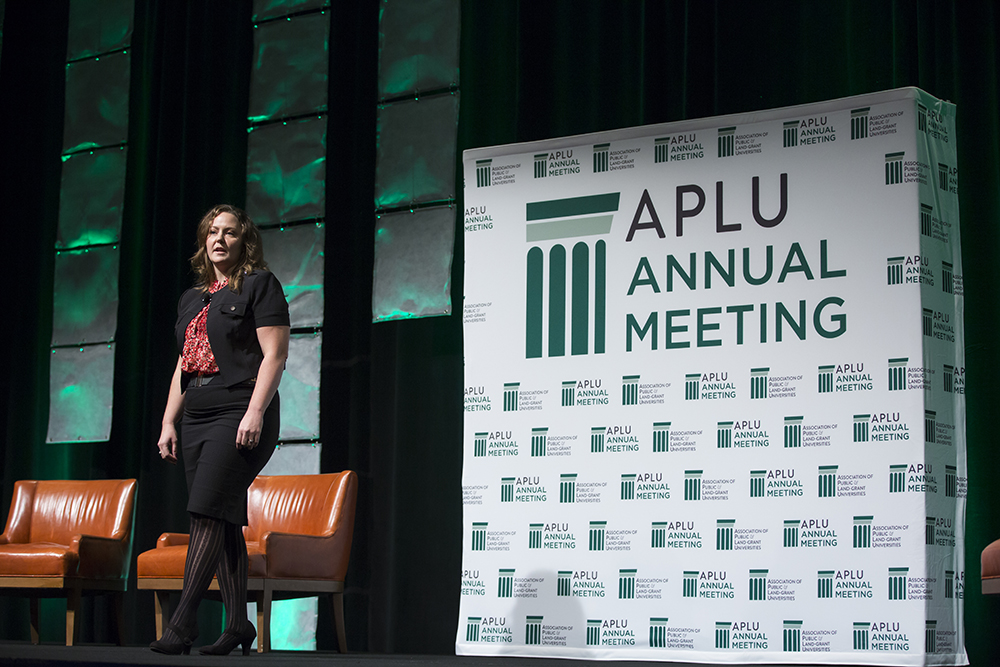Melissa Welker walked up a short flight of stairs to take her spot center stage. She was fourth in line to deliver a five-minute sales pitch to a crowd of 100 people and six judges for a competition in the style of the popular reality TV show “Shark Tank.”

The heat from the stage lights beat down on her as she looked out into the audience for the first time. It was then she realized the lights were so bright that she couldn’t see anyone in the crowd, only silhouettes.
Welker, executive director of NAU’s Student Success Initiatives and Programs for University College, had been practicing her pitch for three weeks. She was at the annual meeting for the Association of Public and Land-grant Universities to convince a panel of judges that NAU’s new Building a Rapid Response to Risk (R3) System was a winning idea. The R3 system is a strategic student advising program developed by Welker and her colleagues for the competition.
The APLU challenge this year—“Student Success 3.0”—had six public research institutions competing for up to $165,000 in innovation funds for their proposed student success and advising initiatives. The pitch competition is modeled after “Shark Tank,” where contestants present their business ideas to judges who decide if the idea is worthy of investment.
Back on stage, Welker’s eyes were adjusting to the lights. She had spent days memorizing her sales pitch, repeating it over and over again in the hours leading up to the competition. She had fine-tuned her delivery style by perfecting her tone and hand gestures. She recalled tips from her APLU-appointed communication coach who trains TED presenters. The coach instructed the presenters to speak slowly, no more than 120 words a minute.
But after about a minute into the pitch, the words stopped flowing and Welker froze.
“There was a moment when I was trying to figure out the crowd and how to engage them somehow. I was thinking so hard about it that the words went out of my brain. But because I had memorized my pitch, I paused at a very natural place, cleared my throat, picked it right up again and carried on.”
After that heart-stopping moment, she coasted through the final minutes of her pitch as practiced.
The program proposed by Welker and her colleagues on behalf of the university was one of six selected from more than 35 applicants across the country. It was based off of an existing model used by NAU’s Student Success Coaching Center, where staff and faculty work one on one with students who are seeking resources and solutions to problems that seem overwhelming in the second year of school. The proposed R3 system would use predictive analytics to recognize and intervene when a student is showing signs of struggle.
“The premise of the program is the individualized student attention that NAU emphasizes, with the goal of using up-and-coming information and data so that coaches could work with students in a more direct way,” Welker said. “The program would impact students who fall out of the advising pipeline. We would be able to reconnect them with the resources on campus to help them be successful in their academic careers.”
After each pitch, the contestants answered questions from the judges and audience. And although NAU’s program didn’t win—Portland State University won for its tech-based degree mapping program—Welker believes the experience was an opportunity for NAU to share its innovative ideas on a national platform.
“I’m sad that we lost, but at the same time I recognize that this program is still something we can do as an institution. I think it’s always good to have people interested and committed to ideas like this and certain demographics of students outside the first year of college.”
There are no plans to implement the R3 program at this time, but Welker said a version of it may be used by the university in the future.



